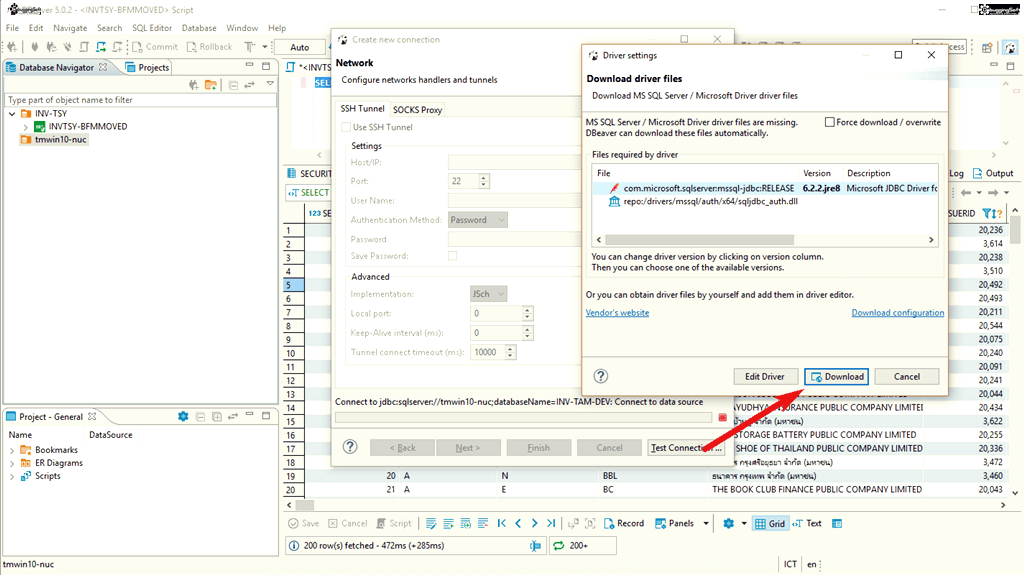

- Read db file online how to#
- Read db file online software#
- Read db file online zip#
- Read db file online free#
- Read db file online windows#
If you don’t like using office-style databases - or don’t have access to them - another option is to import large CSV files to a relational SQL database. The maximum size of an individual ACCDB file is 2 GB.įor data analysts working with datasets that run tens to hundreds of millions of rows, this may not be enough. MS Access can open much larger CSVs than a spreadsheet can, but its capacity isn’t unlimited. In the worst cases, an incorrectly written query may give you the ‘wrong’ answer - and you’ll never even realize you made a mistake.Īnd, yet again, we run into a size limitation. And, unlike a spreadsheet, it’s often hard to tell when you’ve made a mistake in a query when working with a database. Not only do these skills take time to learn, they are also prone to errors. Instead, you’re forced to use a more complicated set of features and formula syntax to create queries. It’s much harder to ‘eyeball’ data for insights and trends, and you don’t have access to simple spreadsheet functions like filters and lookups. Opening a CSV file in MS Access doesn’t allow an analyst to work freely with data as they would in Excel. Then select your CSV file and click import.Īnd finally, your CSV file is open albeit in an antiquated database. From the File menu, Choose File → Get External Data → Import.

Next, name the database and save it somewhere appropriate. First, you'll need to create a new database file. To open large CSV files in MS Access there are a number of steps. If your CSV is too big for Excel, and you don't want to use Gigasheet, what’s the next step? Naturally, to use a CSV database program - most likely, MS Access - to open big CSV files. The Old School Method: Convert CSV to MS Access In today’s big data society, that just isn’t enough.
Read db file online windows#

So, how do you open large CSV files in Excel? Essentially, there are two options: So, for practically every data analyst on the planet, opening large data CSVs in Excel has become a huge headache.

Then, with the release of MS Office 2007, the number of rows supported rose to 1,048,576.įor the last 12 years, as the volume of data that data analysts work with has risen exponentially, the number of rows supported by Excel hasn’t budged an inch. Best of all, your data stays private – we don't share or sell any data.ġ5 years ago, Excel spreadsheets were limited to 65,536 rows. The Premium version of Gigasheet supports CSVs of more than 1 billion rows or 50 GB. You can also load CSVs from publicly accessible URLs using the Link option in the upload popup.
Read db file online zip#
You can even zip your files before uploading to save time.
Read db file online free#
That's it! Now you can open any valid CSV file up to 1 GB (enough for tens of millions of rows) with the free Community version of Gigasheet.
Read db file online how to#
Here's how to view your large CSV in 3 easy steps: We built Gigasheet to make working with large files as easy as using a spreadsheet. (Spoiler: you can create a free Gigasheet account to try your own file!) What does an analyst do when their preferred method no longer works? They look for a workaround.
Read db file online software#
but the sheer volume of data has risen to the point where standard office software can no longer cope, turning analysts who can no longer rely on spreadsheets into Citizen Data Scientists. Analysts and business users rely on spreadsheets for a lot of their work. But as valuable as these tools are, it’s hard to beat the simplicity and flexibility of a good ol’ fashioned spreadsheet. Databases, BI solutions, and other tools (security-related and otherwise) promise to help analysts process their data. For years now, analysts have relied on spreadsheets to work with all kinds of data and analyze large CSV files.


 0 kommentar(er)
0 kommentar(er)
